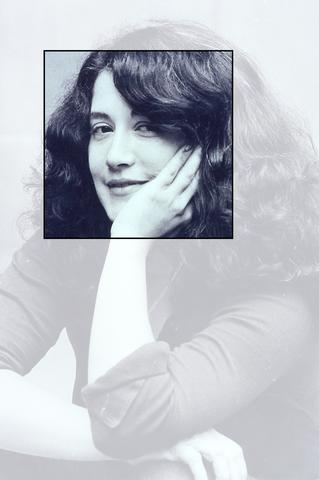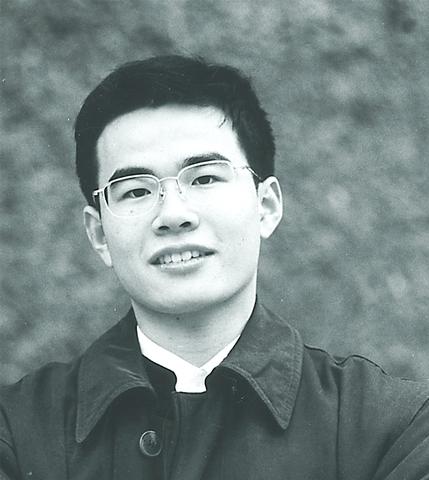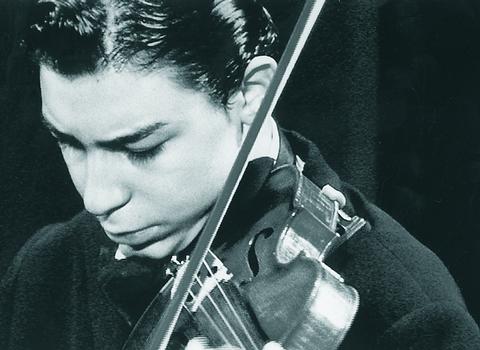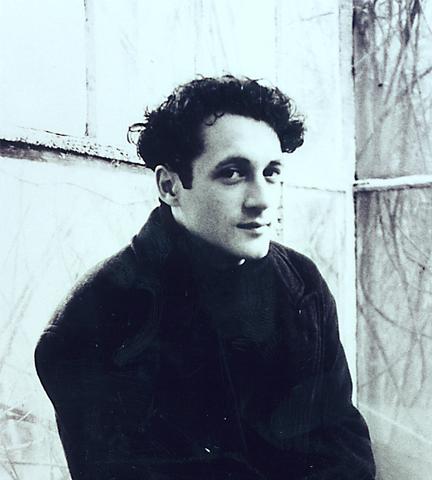It's too good to be true, but, Martha Argerich, the world's most prominent female pianist, is for the first time holding a festival in Taipei. The honor is a precious one considering that only Japan has an Argerich festival and that the pre-eminent Argentine pianist cancelled her Israel concert in favor of the Taipei venue.
Last year, after three cancelations, Argerich finally arrived in Taipei for the first time and was impressed by the hospitality with which she was greeted. She agreed to come back from something more than just a concert -- as a result, Taipei residents will be able to enjoy the first ever Argerich festival in Taiwan.
At a time when male pianists dominate the international music scene, Martha Argerich has managed to achieve a position towering above her many male counterparts. Aged 60, she is recognized as a peer of legendary Russian maestro Vladimir Horowitz and the idiosyncratic genius Glen Gould -- in other words, as one of the greats of the 20th century.

PHOTO COURTESY OF NEW ASPECT INTERNATION
Last year, when the Argentine pianist played Chopin and Prokofieff at New York's Carnegie Hall, she mesmerized a packed house, receiving six curtain calls at the intermission and 16 at the final curtain. Argerich's US fans warmly greeted her after an long absence of 19 years, which marked a victorious 10-year fight with cancer.
Her comeback has reminded music fans what they have been missing. In a review of the concert, Justin Davidson says of Argerich: "I can't think of another pianist who commands such a volatile combination of technical mastery and unselfconsciousness. Her greatest peers deal in deliberate sensitivity, structure and microscopic poetry, but Argerich's playing seems to well up from some bubbling, liquid core of musicality."
Local audiences share Davidson's enthusiasm. Last year, during Argerich's first visit here, she had local audiences shouting and stomping for more, giving her five standing ovations. And the superb Chopin interpreter was ardently requested to return, as she does every year to Japan.

PHOTO: COURTESY OF ASPECT
Argerich studied with such distinguished European pianists as Friedrich Gulda and Nikita Magaloff before she won the competitions at Busoni and Geneva in 1957 at just 16. Her debut recital was held in 1960. In 1965, she again won first prize in the Chopin International Competition in Warsaw, after which Karajan, Bernstein, and Solti could stop in their praise of her. In 1999, she was chosen as Best Instrumental Soloist Performance with Orchestra in the Grammy Awards.
Back in the 1960s, Argerich said she was thinking about starting a secretary's job before she won the Chopin competition. "I love to play the piano, but I don't like being a pianist," she told the press. "I am not very comfortable with my profession." But her incredible talent has pushed her to the forefront of her new profession and now she sets her own terms with concert organizers and record labels.
For her Taiwan trip, Argerich will be playing two concerts, a solo show and a ensemble performance in which she brings her favorite young musicians on stage, including Cuban pianist Mauricio Vallina, 30, Belgium pianist Alexander Gurning, 27, Swiss violinist Geza Hosszu-Legocky, 16, and the six-year-old Tango quintet Soledad Quintette, who will be playing a duo with Argerich for the festival.

PHOTO: COURTESY OF ASPECT
Two young pianists are also featured in the festival, each with their own solo recital. Chen Cheng (
Performance Note
WHAT The First Martha Argerich Music Festival

PHOTO: COURTESY OF ASPECT
in Taipei (台北阿格麗希音樂節)
WHEN Tomorrow until Thursday;
Tomorrow 7:45pm, Chen Cheng Piano
Recital -- The 1st Argerich Festival I
Sunday 10am, A lecture on Piano Competitions Worldwide -- The 1st Argerich Festival II
Monday 7:45 pm: Argerich Concerto Night
-- The 1st Argerich Festival III
Tuesday 7:45 pm: Argerich Ensemble Night
-- The 1st Argerich Festival IV
Thursday 7:45 pm: Etsuko Hirose Piano Recital -- The 1st Argerich Festival V
WHERE National Concert Hall (April 9, 10, 12), Recital Hall
(April 7-8), 21 Chungshan S. Rd.,Taipei.
(國家音樂廳及演奏廳 -- 北市中山南路21號)
TICKET Tomorrow NT$500-NT$800
Sunday NT$300
Monday, NT$2,200-NT$4,800
Tuesday NT$2,200-NT$4,800
Thursday NT$300-NT$1,600.
Call tel (02) 2709-3788 for more information

This is the year that the demographic crisis will begin to impact people’s lives. This will create pressures on treatment and hiring of foreigners. Regardless of whatever technological breakthroughs happen, the real value will come from digesting and productively applying existing technologies in new and creative ways. INTRODUCING BASIC SERVICES BREAKDOWNS At some point soon, we will begin to witness a breakdown in basic services. Initially, it will be limited and sporadic, but the frequency and newsworthiness of the incidents will only continue to accelerate dramatically in the coming years. Here in central Taiwan, many basic services are severely understaffed, and

Jan. 5 to Jan. 11 Of the more than 3,000km of sugar railway that once criss-crossed central and southern Taiwan, just 16.1km remain in operation today. By the time Dafydd Fell began photographing the network in earnest in 1994, it was already well past its heyday. The system had been significantly cut back, leaving behind abandoned stations, rusting rolling stock and crumbling facilities. This reduction continued during the five years of his documentation, adding urgency to his task. As passenger services had already ceased by then, Fell had to wait for the sugarcane harvest season each year, which typically ran from

It is a soulful folk song, filled with feeling and history: A love-stricken young man tells God about his hopes and dreams of happiness. Generations of Uighurs, the Turkic ethnic minority in China’s Xinjiang region, have played it at parties and weddings. But today, if they download it, play it or share it online, they risk ending up in prison. Besh pede, a popular Uighur folk ballad, is among dozens of Uighur-language songs that have been deemed “problematic” by Xinjiang authorities, according to a recording of a meeting held by police and other local officials in the historic city of Kashgar in

It’s a good thing that 2025 is over. Yes, I fully expect we will look back on the year with nostalgia, once we have experienced this year and 2027. Traditionally at New Years much discourse is devoted to discussing what happened the previous year. Let’s have a look at what didn’t happen. Many bad things did not happen. The People’s Republic of China (PRC) did not attack Taiwan. We didn’t have a massive, destructive earthquake or drought. We didn’t have a major human pandemic. No widespread unemployment or other destructive social events. Nothing serious was done about Taiwan’s swelling birth rate catastrophe.